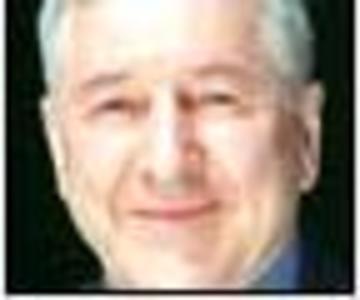After some years of remission and peace, Quebec’s radical demands to reform or end the Canadian federation have re-emerged with new insistence, threatening to challenge the country and test whatever federal government is elected on May 2.
Pauline Maurois, who is likely to displace the Liberals and form the next Quebec government within two years, emerged triumphant from the weekend convention of the Parti Québécois with a confidence vote of 93 per cent, the highest in the party’s history. She promptly announced that a PQ government, as soon as it was elected, would enact a program of gouvernance souverainiste – that is, would occupy various jurisdictions now exercised by the federal government.
And neither the Constitution nor the Supreme Court of Canada could deter her. “If Canada wants to put obstacles in our way, with colonial relics and its judicial arbitrations, the Québécois will judge,” she told Sunday’s closing press conference.
She had made the point – or threat – in her keynote Friday speech as the convention opened. “Our will is fierce. During the next elections, we will propose to the Québécois a government that will stop at nothing, that will defend the needs and the aspirations of Quebec without concern about what Canada wants or does not want.”
The PQ, she said, would assume control over one jurisdiction after another, including language, culture, the environment and the economy.
The Supreme Court, in the reference on secession, ruled in 1998 that Quebec could aspire to independence, but only insofar as it obtained an amendment to the Constitution. That required the consent of the provinces and the federal government.
But the PQ leaders, except René Lévesque, never submitted to the rule of law. They claimed that the will of the people overrules the Constitution. “Quebec is free, free to determine its destiny, and we will liberate this energy,” Ms. Marois proclaimed. “We will take over all the powers that are essential to the flowering of a free people. Our legitimacy will come from the democratic will of our fellow citizens.”
On the federal campaign scene, meanwhile, Bloc Québécois Leader Gilles Duceppe destabilized his three opponents during the French-language leaders debate when he challenged each to reveal what he proposed to meet Quebec’s long-standing constitutional demands. Stephen Harper, Michael Ignatieff and Jack Layton did not offer constitutional proposals. In Quebec, their silence was taken as failure and Mr. Duceppe was declared the debate’s winner hands down.
In Quebec, both Liberals and Péquistes refuse to recognize the legitimacy of the 1982 patriation of the Constitution – maintaining that it would have required the consent of the National Assembly, which was opposed – even though the Supreme Court demolished in 1982 the Quebec government’s insistence that Quebec’s opposition made the new Constitution illegitimate. The court ruled: “The Constitution Act, 1982 is now in force. Its legality is neither challenged nor assailable.”
But instead of countering Mr. Duceppe’s separatist assumptions during the debate, the Liberal and NDP leaders seemed to concede that Quebec was outside the Constitution.
“I would like for Quebec to be in the Canadian Constitution,” Mr. Ignatieff said. “It’s a problem difficult to resolve.” And Mr. Layton? “With very positive initiatives, we can begin the difficult process of including Quebec in the Constitution. It will be difficult, but we support taking the first steps in that direction.”
Ms. Marois will not even admit that secession lost in the referendums of 1980 and 1995. No, federalism won by fraud: “Twice before, we tried to bring this great undertaking to conclusion. Unfortunately, the Québécois were deceived. The people were misled by lies, by broken promises, by betrayals, by cheating, by the cowardice of the federalist camp.”
Since Pierre Trudeau left the scene, no prime minister has called the bluff of separatist pretensions, especially the assumption that a referendum score provides an unconditional permit to secede. This has been the doctrine of Jacques Parizeau, Lucien Bouchard and Ms. Marois, but also of Robert Bourassa, Daniel Johnson and Jean Charest. It’s a dangerous myth that could plunge the country into civil strife.
We have all been warned. The next prime minister must no longer remain passive and evasive before the renewed radicalism in Quebec but must take the offensive and convince all Quebeckers that the rule of law will prevail.
Take heed Canada, there's renewed radicalism in Quebec
PQ - en marche vers le pouvoir

William Johnson53 articles
William Johnson, a Quebec journalist, is a former president of Alliance Quebec




























Laissez un commentaire Votre adresse courriel ne sera pas publiée.
Veuillez vous connecter afin de laisser un commentaire.
Aucun commentaire trouvé